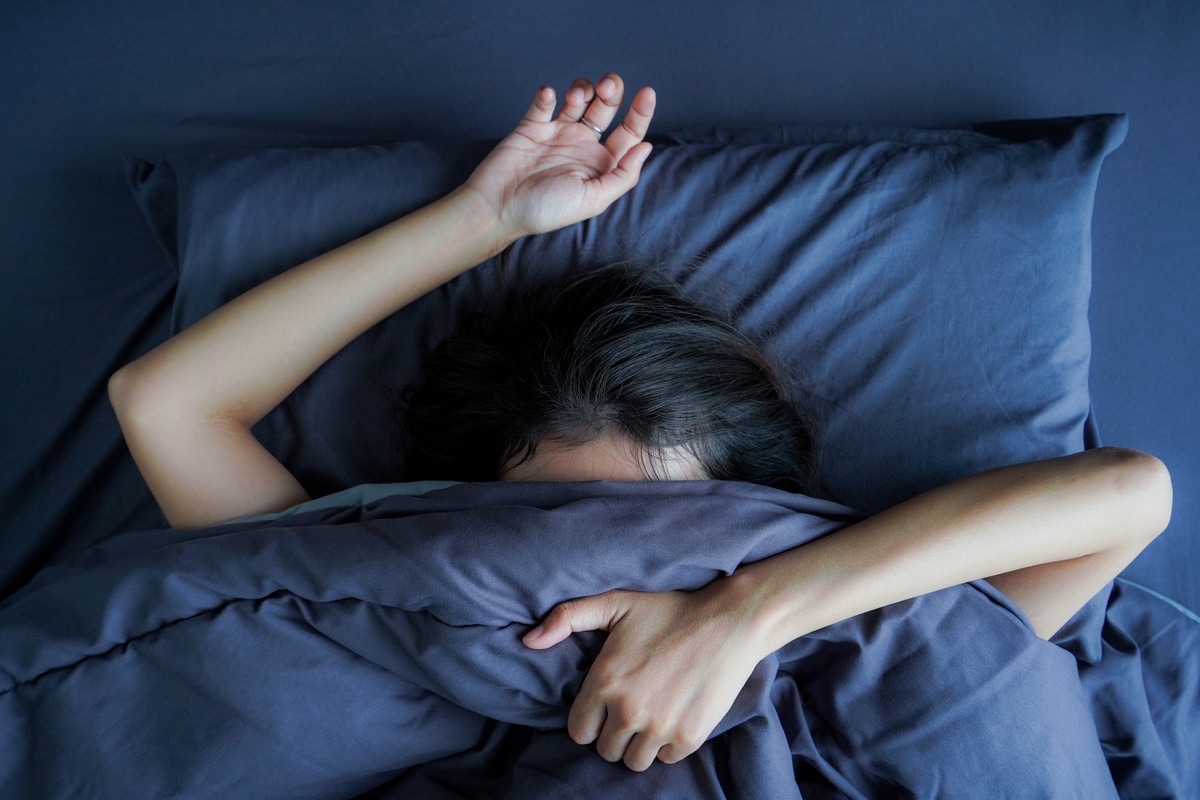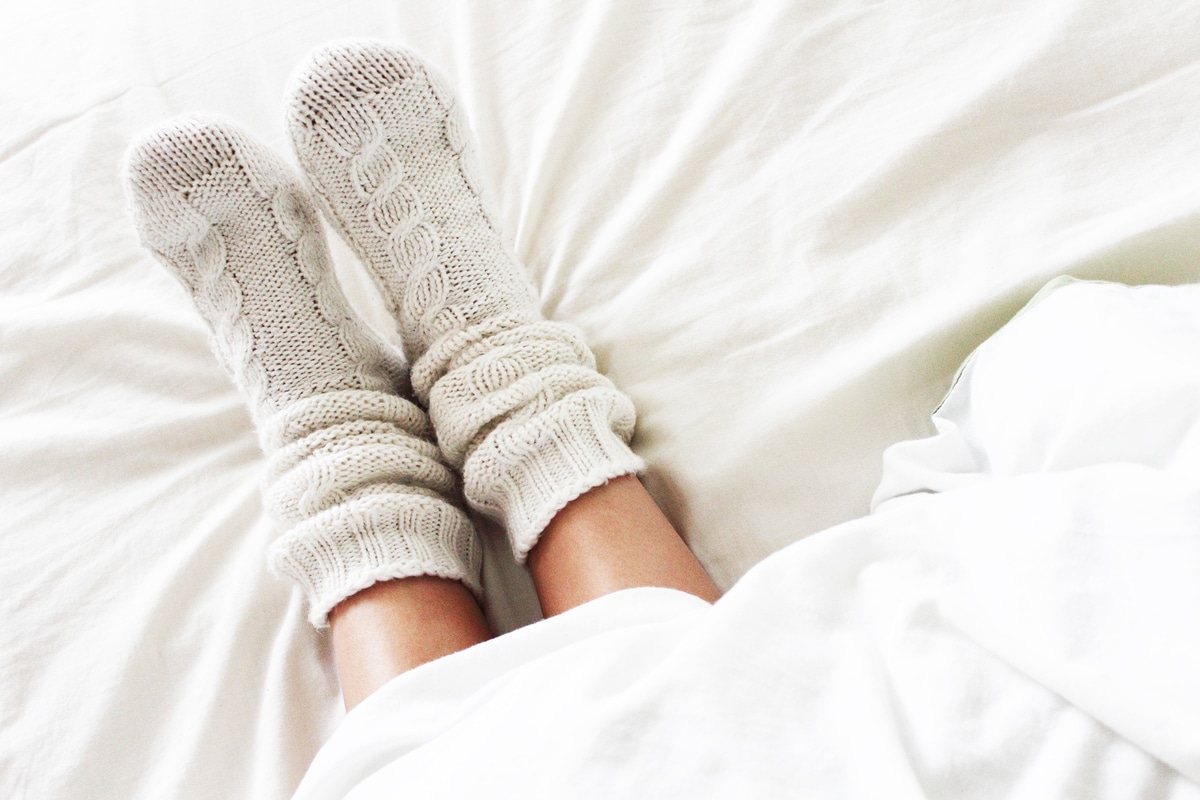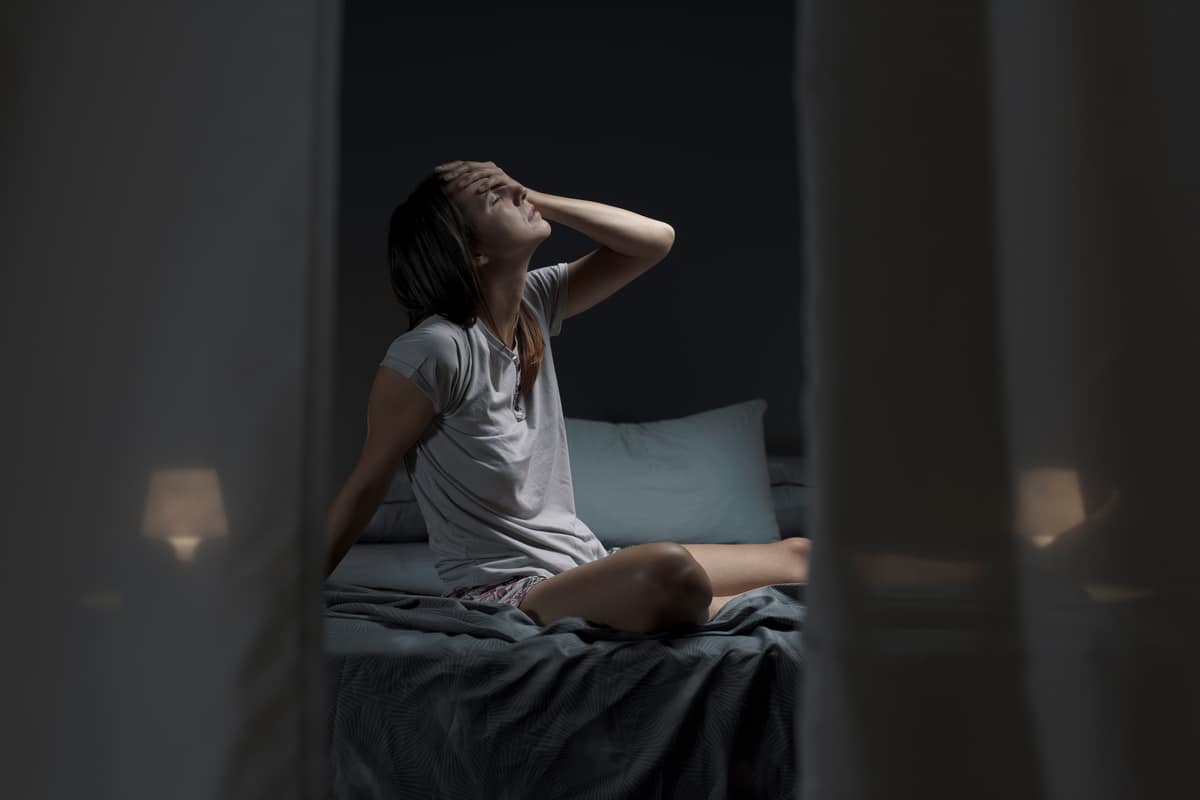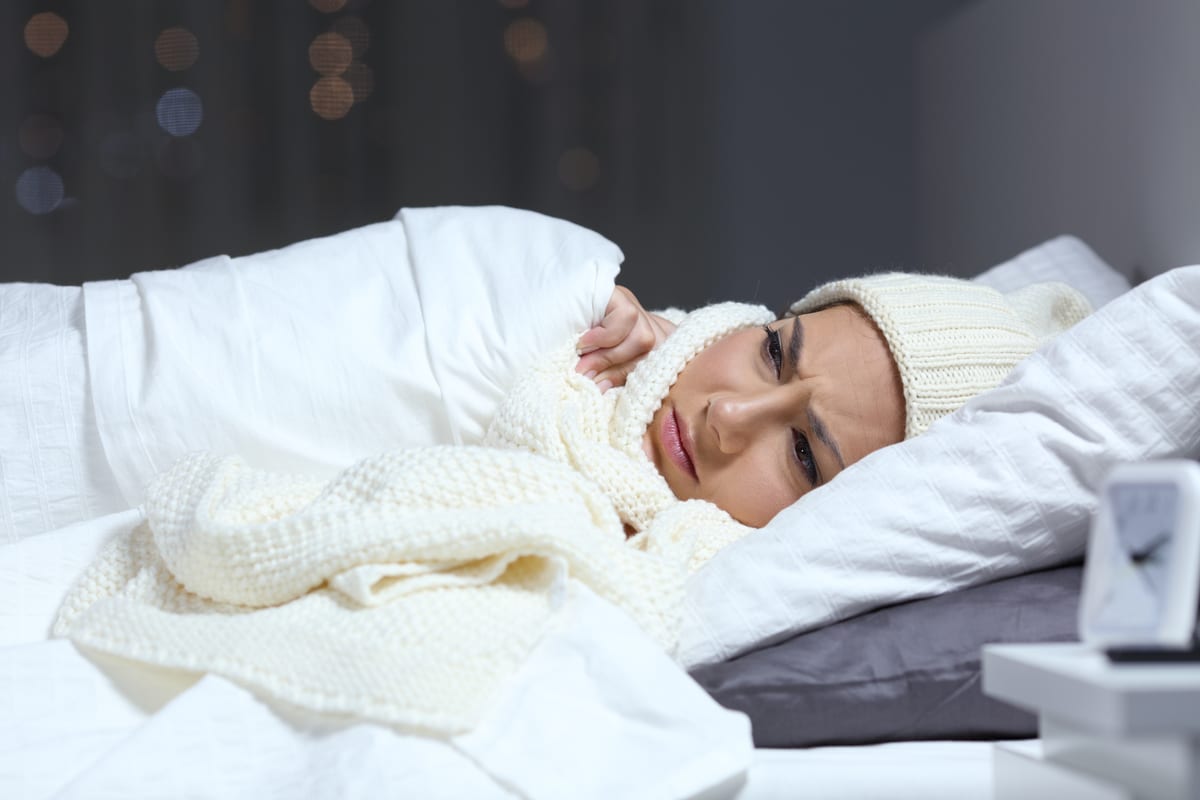
Some people may only see a lack of sleep as a problem and are not aware of the negative effects oversleeping can have.
A few of these effects include fatigue, lack of energy, anxiousness, and mood changes. But an uptick in how long you are sleeping can mean that there may be some underlying causes or reasons.
Getting to the bottom of why you are sleeping so much can help you figure out how to stop oversleeping.
Here is an overview of the symptoms and causes of oversleeping and tips to prevent it.
What Is Oversleeping?
Oversleeping is more than just sleeping in a few extra hours. In fact, it is a medical disorder often referred to as “hypersomnia.”
Long physical activities, plane rides, and sickness can cause someone to need a few hours of extra sleep to recharge. But sleeping more than twelve hours most days is a sure sign that you may be oversleeping.
What Are the Symptoms of Oversleeping?
Sleep is essential for maintaining proper health and wellness. Without a healthy amount of sleep, our bodies and minds cannot recharge for the next day.
Not getting enough sleep can produce some of the same symptoms as getting too much sleep.
Some of these symptoms include:
- Low energy
- Extreme exhaustion
- Anxiety
- Depressed moods
- Headaches
- Muscle aches
- Heart disease
- Decreased immune function
There is a difference between catching up on sleep on the weekends and repeatedly oversleeping most days. If you notice any of these symptoms showing up often or find yourself sleeping past noon frequently, then you may be oversleeping!
Is Oversleeping Linked to Any Medical Conditions?
While oversleeping can cause many side effects, certain conditions can cause oversleeping. Oversleeping has been linked to many medical problems like diabetes, heart disease, and obesity (to name a few!).
Diabetes
Most research recognizes that sleep patterns interact with health, especially in people with diabetes. New studies have found links between increased sleep and higher mortality rates in people with Type 2 Diabetes.
It goes both ways, with oversleeping increasing the risk of diabetes in people. Not only can diabetes affect one’s sleeping patterns, but those sleeping patterns can easily affect symptoms of diabetes.
Heart Disease
Researchers have noticed an association between heart disease and oversleeping. It is not said that oversleeping causes heart disease, but that poor health may cause someone to sleep longer than they should.
Obesity
The association between oversleeping and obesity shows that those who sleep more than the average time are more likely to become obese. Those who are obese are also more likely to sleep for longer periods.
How Much Sleep Is Too Much Sleep?
The amount of sleep needed varies from person to person. Their lifestyle, diet, and age all factor into the hours their bodies need to recuperate and recharge.
Adults tend to need between seven to nine hours a night, while teenagers need about eight to ten. Children need even more; the younger they are the more hours of sleep they need.
Infants require 14 to 17 hours, and school-age children need about nine to twelve hours of sleep a night.
Why Do I Keep Oversleeping?
Many reasons can account for your oversleeping, some due to medical conditions and others due to lifestyle habits.
Depression
Difficulty sleeping and oversleeping are common symptoms of depression, particularly in young adults and teenagers.
Higher rates of depression are associated with longer sleep, which may be due to the fatigue and lack of motivation caused by depression.
It is often difficult for those with depression to get out of bed or have any motivation to start their day, which ultimately leads to excessive sleeping.
Sleep Disorders
Excessive oversleeping can be due to sleep disorders like sleep apnea, narcolepsy, and idiopathic hypersomnia.
Sleep apnea is a disorder where you stop breathing momentarily when sleeping. This disorder often makes people lose sleep during the night, which may cause daytime sleepiness or the urge to oversleep the next night.
Narcolepsy can also cause oversleeping and is characterized by frequent “sleep attacks,” which are the sudden urges to sleep, or long hours of sleep due to damage to the hypothalamus.
Then there is idiopathic hypersomnia which is a more medical term for oversleeping. Idiopathic hypersomnia is only diagnosed when there are no other underlying causes of oversleeping.
Chronic Pain
Chronic pain refers to recurring or persistent pain that lasts for months or longer. There is a strong relationship between chronic pain and sleep, particularly in pain levels and sleep disturbance.
People with chronic leg or back pain may experience difficulty with certain sleep positions, which can disrupt a long night of rest.
Disrupted or fragmented sleep can even heighten sensitivity to pain and pain can cause disrupted or fragmented sleep. The pain often causes drowsiness or sleepiness during the day, making it difficult for people to exercise or function.
Hypothyroidism
Hypothyroidism is when your thyroid gland is underactive. This disorder weakens the ability of your thyroid to produce enough hormones to satisfy your body’s needs. This can cause sleepiness during the day, leading to the urge to nap or sleep even more at night.
Prolonged Exposure to Stress
When your body is exposed to stress frequently, it can quickly become fatigued to the point of exhaustion. This can lead you to want to rest or sleep more often than normal.
How to Stop Oversleeping
The good news is that you can avoid oversleeping with a few changes to your daily habits!
Avoid Taking Naps
People who take long, frequent naps during the day may be disrupting their sleep cycle or reducing their need to rest, which can keep them up late into the night.
If you cannot go without taking a nap, then a short nap of around 20 to 30 minutes can keep you refreshed without risking a night of tossing and turning or oversleeping.
Limit Phone Use at Night
The blue light emitted from electronic screens has been shown to disrupt circadian rhythm. Circadian rhythms are your 24-hour cycle of physical, mental, and emotional changes.
Putting down your phone an hour or two before you lay down to rest can help you fall asleep at an appropriate time so you are well-rested (instead of sleeping far into the next day).
Eliminate Noises
Noises are annoying especially when you are trying to fall asleep! So, to make sure you get enough rest during the night, you may want to sleep in a comfortable noise-free environment.
Set Alarms
One of the most efficient ways to stop oversleeping is to set multiple alarms (if you need more than one). Alarms work even better when you set them at the same time every morning because it helps condition your body to wake up around that time.
Start a Nightly Routine
Sometimes routine can help your brain settle down or emit a signal that it’s time to settle down and rest.
Your routine can consist of calming activities such as bedtime yoga, drinking tea, meditation, stretching, or listening to soothing music.
Exercise Frequently
Exercise has positive effects on your body and your mental health, which can help you sleep better at night. But, make sure you don’t exercise too close to your sleep time since your body is fully awakened and energized during physical activity.
Use Blackout Blinds
Your sleep environment plays a large role in the quality of sleep you get. Using blackout blinds can keep sunlight from entering the room and disrupting your rest.
If you grab some blackout blinds and eliminate most noise, you may be able to sleep better and lessen the urge to oversleep.
Check Your Eating Habits
Your diet can have a drastic impact on your quality of sleep and energy levels. Certain foods can make it easier or harder to get the sleep you need and prevent you from wanting to sleep all the time.
Foods rich in magnesium, calcium, and Vitamins A, C, D, E, and K, plus fruits and vegetables, are key parts of a diet to help improve sleep quality.
Avoid the Snooze Button
Five more minutes, right? Wrong! It’s tempting to hit the snooze button over and over until you are ready to get out of bed.
But, doing this makes it easier to keep sleeping and harder to get up. So, if you can, only have one snooze button or none at all.
The Bottom Line
Oversleeping can have consequences, including physical and mental health, decision making, and productivity.
Learning how to stop oversleeping can make a difference in your quality of life from your sleep cycle to your energy levels.
If you are feeling anxious, exhausted, depressed, sick, or have many headaches and body aches, you can be experiencing symptoms of oversleeping. But luckily for you, there are plenty of ways to combat this.
You can try to avoid naps, limit phone use at night, eliminate noises, set alarms, start a nightly routine, exercise frequently, use blackout curtains, check your eating habits, or avoid the snooze buttons.










